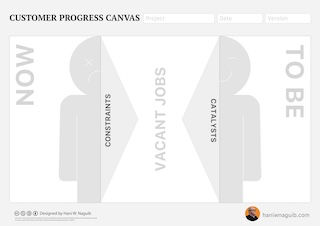Mentor Journey: What I learned from mentoring 300 Egyptian startups
- Hani W. Naguib

- Jul 6, 2017
- 4 min read
For the past five years, I had the amazing opportunity to work with over 300 local startups. It has been a wonderful learning experience. As a mentor and trainer of entrepreneurs, there is nothing more fulfilling than accompanying a group of enthusiastic entrepreneurs on their startup journeys. It allowed me to witness first hand the true meaning of perseverance against monumental odds, the determination to succeed despite scarce resources and funds and the uncharted faith in the eventuality of impact making.
But it also allowed me to get a sense of the typical challenges Egyptian entrepreneurs face during their startup journey. Despite that I worked with many startups at different stages, ranging from idea phase to market deployment to scaling phase and in different fields of activities spanning from social, fintech, e-commerce, clean tech, fashion to hardware development, I couldn’t help but notice the same observations/themes emerging over and over again. These interconnected observations were made on both the entrepreneur and startup levels.
OBSERVATIONS ON THE ENTREPRENEURS LEVEL:
Fixed Mindsets: Many of the entrepreneur perceive their startup as a pass or fail test and not as learning journey of progressing actions towards achieving a certain vision. This key challenge prohibits an entrepreneur’s potential to develop on the personal level to meet with the continuously rising startup’s needs. Startups are journeys and not destinations.
Sales Vs Strategy mentality: When meeting entrepreneurs for the first time, I usually get the sales pitch about how their product or service is unique. I try to discuss with them their strategy, their business model or even their customer, I am usually met with non-fact based assumptions combined with personal opinions. Mostly, they focus on selling an attractive idea and not a potentially profitable business. It is seldom that I meet an entrepreneur who is seeking help with developing a sound strategy or seeking to validate his/her proposed solution with facts. Having sales skills is important. However, without a sound strategy/business model, an entrepreneur has nothing really to sell other than a well articulated fiction.
Personal Priorities Vs Startup Priorities: Many of the entrepreneurs I meet are laser focused on getting accepted into incubation programs or winning competitions than to actually work on their startup. The phenomena of “program hopping” is really popular in the local entrepreneurial ecosystem. Eventually all we get is “wanapreneurs” with convincing pitching powerpoint presentations. Real startup progress: minimum. Don’t get me wrong, these sort of activities are important to offer access to much needed mentoring, exposure or seed funding. However, they seam to be wasted on the less serious entrepreneurs whose sales ability are much higher than their execution appetite. Priorities are obviously mixed up!
OBSERVATIONS ON THE STARTUP LEVEL:
Business Rational Vs. Tech Development: Many of the entrepreneurs believe that what they are building as a product/service is actually the startup itself. They think of the tech in vacuum, without putting much thought into why the startup itself exists, i.e, the vision. It is simply limiting to the startup’s future and does not allow for any room to maneuver if/when the tech does not get market traction.
Eventually the absence of vision translates to the absence of a solid business model. The delivery of a full-fledged working prototype (the solution) becomes more important than actually understanding the potential customer’s problem, how much this customer is willing to pay to solve such problem and what kind of activities and resources are needed to actually offer that solution. In a nutshell, substantial undermining of the business rational.
Business Environment: Many entrepreneurs design their business model in a vacuum, i.e., they do not account for the business environment in which the company is active. This reoccurring problem is probably the most dangerous of all; it limits the startup ability to perform smoothly or adapt to what has become a very competitive, fast changing and resource challenging business landscape.
In words of Alex Osterwalder who invented the Business Model Canvas:
“Your ideas don’t matter. What matters is how you turn your idea into a value proposition customers want, embedded in a profitable & scalable business model.”
Despite the economic challenges the country is currently facing, the Egyptian startup ecosystem still has a very strong potential. Every problem you see around you, is a startup just waiting to happen. It is a fertile soil for innovating viable business models. It is not enough to have attractive business ideas but rather to understand the importance of fact based, repeatable and scalable business models when designing a startup. Applying and adopting the holistic hybrid thinking approach of business design (customer centric design thinking/business model rational) offers entrepreneurs a better chance of success with their endeavors. Embracing the mindset of evidence based entrepreneurship as a process for the startup journey, offers the unique opportunity of minimizing uncertainty and spending the least possible funds prior to actually executing a potential business model or building an expensive product/service that no one actually wants.
Startup is a journey, not a destination.



Comments